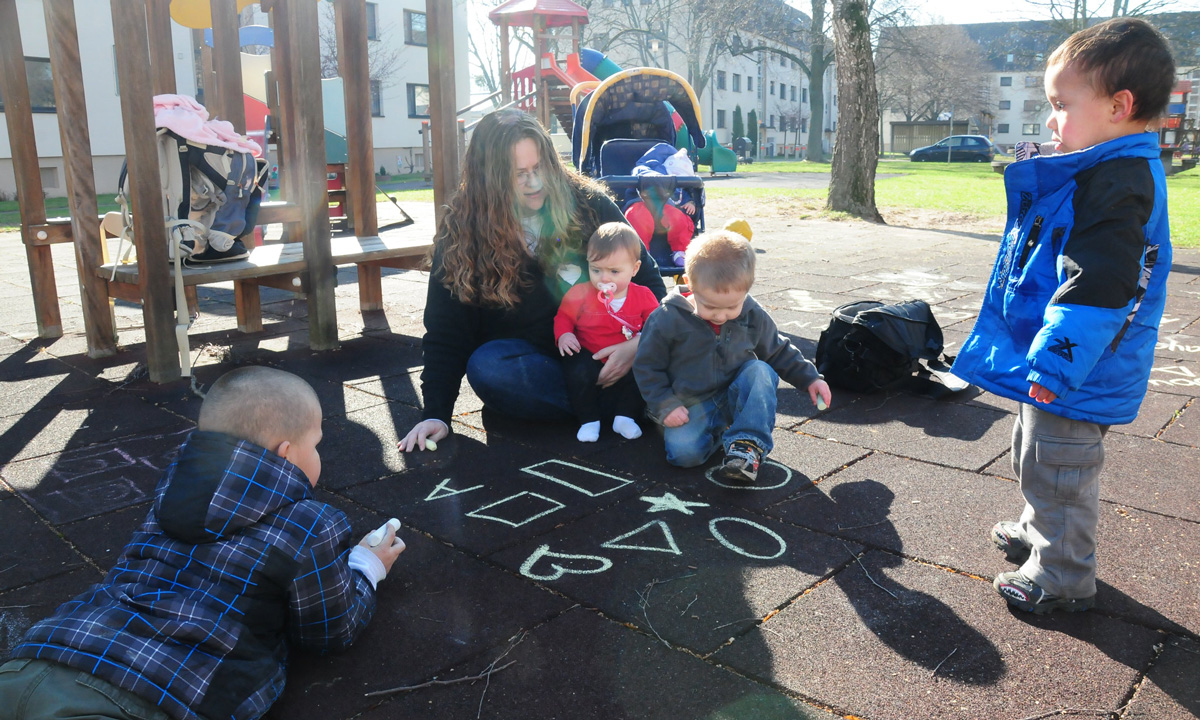I’ll be honest, I didn’t expect child care to be a major flashpoint in the 2024 election cycle. There are so many other topics — inflation, abortion, immigration — that regularly suck all the oxygen out of the room. Imagine my surprise, then, when child care suddenly erupted as an issue-of-the-week thanks to a series of increasingly tangled comments by J.D. Vance and Donald Trump. What the episode revealed to me, however, is that America lacks any agreed-upon framework for talking about child care, and it’s going to be tough to move forward until we step back.
Policy experts note that public opinion about a particular topic is deeply shaped by the framing that is dominant at the time. These frameworks are frequently contested through implicit and explicit messages that go out through media, as well as topical debates in the political arena. The political scientist Deborah Stone puts it this way: “Ideas are at the center of all political conflict. Policymaking, in turn, is a constant struggle over the criteria for classification; the boundaries of categories, and the definition of ideals that guide the way people behave.”
A classic example is nuclear power. When nuclear power was primarily seen as a new source of cheap energy, it drew a great deal of support. When it became seen as an environmental danger — influenced by real-life accidents like Chernobyl and Three Mile Island, as well as fictional media portrayals — public support cratered. Today, some environmentalists are trying to intentionally insert a third frame whereby nuclear power is seen as an important tool in reducing greenhouse gas emissions that drive climate change; they face an uphill battle.
Or take a question closer to child care’s wheelhouse: public schools. While schools inarguably serve a child care function (sorry, Randi Weingarten), that is not generally seen as their primary purpose. Instead, schools are defined by their educational impact. Whether that education is aimed more at successful careers, civic engagement, personal self-actualization or something else certainly remains contested, but the overarching frame of schools = education is set.
When it comes to child care, America seems to be experiencing what psychologist William James described as the first moments of an infant’s life: a “blooming, buzzing confusion.” Particularly in an era when child care is finally getting widespread attention instead of being relegated to a component of welfare, we have yet to answer the questions: what is child care and who is it for? In many cases, we have yet to even ask those questions.
Is child care primarily a work support for parents? Is it child development that helps kids with early learning and growth? Is it a way to reduce family stress and increase family functioning? Is it social infrastructure that connects parents, a la libraries and parks? Is it intended to promote gender equity? Who counts as a valid child care provider? Is the goal to have a minimum level of adequate child care that keeps costs low or to have abundant, first-rate child care settings with well-compensated educators? Heck, we can’t even agree on definitions: is child care policy about ages birth to 5? Birth to 8? Birth to 13? Birth to 18?
You’re probably thinking that child care is not just one thing, and that much of the above list is not mutually exclusive. You’d of course be correct. But ‘not just one thing’ doesn’t obviate the need, again, for a primary frame. Right now, we’re not even trying to hash out what that primary frame is, and so we often end up talking past one another.
Comments regarding child care made by Vance and Kamala Harris in recent months illustrate this societal confusion.
In an August Face the Nation interview, Vance responded to questions about his opposition to universal child care proposals: “what I’ve opposed is one model of child care. We, of course, want to give everybody access to child care. But look, in my family, I grew up in a poor family where the child care was my grandparents, and a lot of these child care proposals do nothing for grandparents. If you look at some of these proposals, they do nothing for stay-at-home moms or stay-at-home dads. I want us to have a child care policy that’s good for all families, not just a particular model of family, and that’s what I’ve said.”
Harris, meanwhile, offered the following during an appearance before the National Association of Black Journalists: “the state of affairs in our country that working people often have to decide to either be able to work or be able to afford childcare … they can’t afford childcare and actually do the work that they want to do because it’s too expensive, and it doesn’t actually level out in terms of the expense versus the income. My plan is that no family — no working family should pay more than 7 percent of their income in childcare, because I know that when you talk about the return on that investment, allowing people to work, allowing people to pursue their dreams in terms of how they want to work, where they want to work, benefits us all. It strengthens the entire economy.”
As you can see, these are not two sides of a coin. This isn’t, ‘I think public schools should get more money, you think we should universalize school vouchers’ or ‘I think there should be a single-payer health care system, you think we should deregulate health care and let the market work it out’. This is one side emphasizing child care as a form of broad-based family support and one side emphasizing child care as a way to strengthen parents’ preferred attachment to the labor force. (I do want to emphasize that actions speak louder than words: Vance skipped a Senate vote where his GOP colleagues killed a bipartisan House-passed expansion of the Child Tax Credit, whereas Harris is second-in-command of an administration that proposed the largest funding increase for family support policies, including child care, in American history — one that was, again, blocked by Republicans.)
Partially because of child care’s classist and racist history, it has been subject to markedly less philosophical scrutiny than other issue areas. Frequently, we hear advocacy groups wanting debate moderators or journalists to ask the candidates about their plans for child care. That’s fine as far as it goes (the recent Vice Presidential debate was remarkably substantive on care issues) but I think we’d get a lot further if we first asked political candidates: Why do you think child care is important? What is your vision for an ideal child care system? I think we’d get a lot further, in fact, if we first asked ourselves those questions.
This article was published in partnership with The 74.




